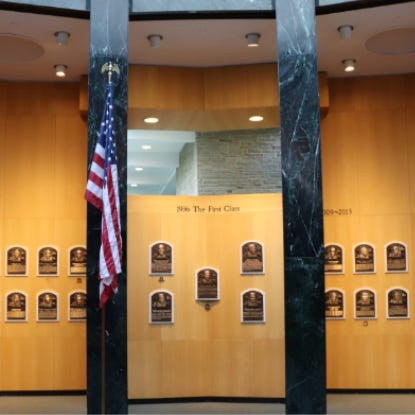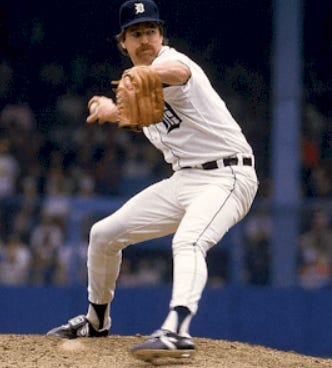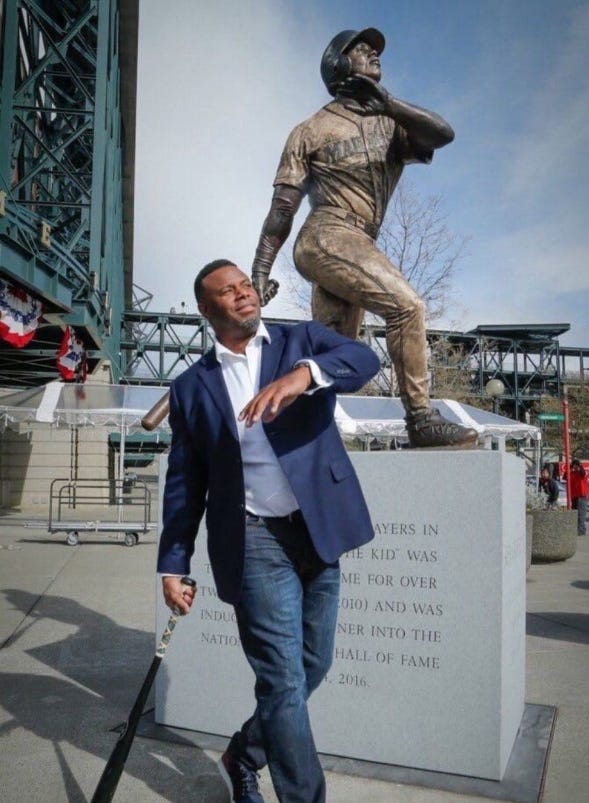Thoughts on the Baseball Hall of Fame Ballot
Major League Baseball’s Hall of Fame balloting is completely out of control. This began years ago when I returned home one night, made myself dinner, and sat down in front of the television where I listened to Sean Casey telling me why Craig Biggio is a deserving Hall of Fame candidate. This was back in 2014 when gritty pitcher Jack Morris was still left languishing in a list of hopefuls. Getting to Cooperstown requires something more than statistics. Craig Biggio was a very good player and sometimes a great player. He did collect 3,000 hits. Sadly, 3,000 hits used to mean a lot more as did 400 home runs before the game’s hyper-powered leanings toward offense. The actual game used to take center stage in the days before launch angles, frivolous April celebrations at home plate, and protective goggles were proactively supplied for postgame champagne celebrations after a wild card victory. I remember Red Sox great Carl Yastrzemski taking what seemed like months attempting to reach hit number 3,000, and when he finally grounded that ball into right field off of Jim Beattie and the dreaded Yankees for that milestone, it actually meant something.
This year Adrian Beltre leads the Hall of Fame ballot. Beltre was an electric player. Baseball writer Chris Russo says that Beltre is a Hall of Fame player and will be the only certain induction on this year’s ballot which also includes Adrian Gonzalez, Jose Bautista, Joe Mauer, Jimmy Rollins, and Chase Utley. Baseball scribe Jayson Stark expects Beltre’s election to be unanimous and has gone so far as to compare Beltre to Jimmie Foxx based on offensive statistics. Russo describes Beltre as a really good hitter, although not necessarily a great hitter. When I think of the Hall of Fame, I picture plaques honoring Babe Ruth, Walter Johnson, Hank Greenberg, Ted Williams, Willie Mays, Cy Young, and Mickey Mantle. Although Biggio and Beltre were really good players, I’m just not sure if they have a place in a crowd that includes Ty Cobb, Stan Musial, and Joe DiMaggio. The Hall of Fame should only include great players. I can’t picture myself strolling through the National Baseball Hall of Fame looking for players who were once described by a reputable baseball writer as being really good but not great. Let’s just say I have a hard time picturing a Scott Rolen plaque sandwiched between plaques for Lou Gehrig and Hank Aaron.
A few years back John Smoltz easily gained induction into the Hall of Fame while Jack Morris was left out again. Morris was perhaps the most dominating starting pitcher of the 1980s, had more wins than Smoltz, pitched at least 120 more complete games than Smoltz, won more World Series than Smoltz (not to mention the epic battle that Morris won against, you guessed it, John Smoltz in 1991), and had way more intestinal fortitude than probably anyone else in the game. Smoltz’s later role coming out of the bullpen was charitable to Braves manager Bobby Cox, but also necessary for the state of Smoltz’s arm while coming back from Tommy John surgery. In comparison, Dennis Eckersley completely reinvented the role of a relief pitcher thanks to the inspiration of Tony LaRussa. Eckersley categorically redefined his career after battling the career-threatening perils of alcohol abuse and managed to reinvent himself as an unhittable closer changing the trajectory of his career back to its original Hall of Fame path when he was a young flamethrowing ace for Cleveland and the Red Sox. Eckersely had such great control and such a commanding presence during his time with the A’s that a local Bay Area news station actually broke into programming one night when Eckersley walked a batter. An MVP, Cy Young Award winner, and World Champion, Eckersley’s story is far more worthy of being passed down through the ages as opposed to Smoltz merely coming back from an arm injury and selflessly volunteering to pitch out of Bobby Cox’s bullpen for a largely underachieving Braves team.
Hall of Famers must have a certain aura to them. The Hall of Fame must elicit stories of bloody socks and ten inning postseason pitching performances. The Hall of Fame must bring back special memories of balls careening off foul poles in October, players who hit .444 down the stretch in 1967, and even designated hitters who came through in the clutch again and again and again. When David Ortiz beat the Detroit Tigers in 2013 with yet another game winning postseason home run, I thought to myself, “He did it again, and after all these years? Really?” I remember watching the first game that Roger Clemens pitched in the big leagues after he was called up by the Red Sox in 1984. I was in a department store watching the game being played at old Municipal Stadium in Cleveland on probably 25 television sets all showing the same game. You could tell that you were watching greatness when the young Clemens pitched. He had the stuff, he had the make-up, and he had the bravado even as a youngster. Former Red Sox reliever Stan Belinda once told me that he and I had more in common as baseball players than he did with Clemens even though he was pitching for the Red Sox that summer and I was happy to get a few innings playing shortstop for a Boston hotel softball team. He told me that players like Clemens are a whole different animal. Belinda said, “I’m just lucky that I got to keep playing after high school.”
There is a certain pedigree and respect that defines Hall of Fame players. Pedro Martinez is a Hall of Famer just like Sandy Koufax is a Hall of Famer. Ken Griffey Jr. is a Hall of Famer like Willie Mays is a Hall of Famer. Jose Bautista is not a Hall of Famer and neither is Chase Utley, and that is not to disrespect either player. They were both really good, even great baseball players, but not necessarily Hall of Fame players. I sometimes marvel at some of the names on the Hall of Fame ballot like Jacoby Ellsbury, a player whose greatest accomplishment might have been convincing the New York Yankees to pay him $153 million dollars for seven years of either absence or mediocrity. Consideration should only go to those who are most deserving, and maybe the players should have more of a voice in determining who those candidates are. I don’t necessarily think the writers should be given a list of potential candidates before voting. If a writer needs a list of names to choose from, they are probably not knowledgeable enough about the game to be voting. I once read an interview with Rolling Stones legend Keith Richards who said that if a song came into his head at night but he could not remember it the next day, it must not be good enough. The same holds true with regard to the candidates for the Baseball Hall of Fame. If, as a writer, you are unable to recall names that you think should be on the ballot, they must not have been good enough. I think that writers should have an opportunity to submit three or fewer names on a blank ballot and instead of concerning themselves with marginal candidates like Victor Martinez and Brandon Phillips, maybe they should concentrate on honoring past players who have somehow been overlooked like Luis Tiant, Dwight Evans, and even Thurman Munson. Players shouldn’t enter the Hall of Fame just because their names happen to come up on the ballot at an opportune time. That only serves to water down the meaning and experience of what the Baseball Hall of Fame should be.
And of course, there is still residual talk from former players currently in the Hall of Fame about sharing the stage with steroid users. Still hanging in the balance as either suspected or documented P.E.D. candidates are Barry Bonds, Roger Clemens, Alex Rodriguez, and Manny Ramirez, among others. Due to multiple offenses including some that were beyond the years of testing, both Alex Rodriguez and Manny Ramirez should be beyond consideration. If I had the chance to cast a ballot this year I would include Roger Clemens, all steroid talk aside. I can picture myself relaying the historical contributions of Rocket Roger many years down the road just as my father talked endlessly about Ted Williams when I was a kid. I just can’t see myself passing on similar stories detailing the careers of Matt Holliday, Adrian Gonzalez, or former candidates for the Hall of Fame that are now off the ballot like the immortal Aubrey Huff. I would not yet vote for Barry Bonds, although my opinion is beginning to change principally due to the hypocrisy involving the game’s recent embrace of legal gambling while continuing to distance itself from Pete Rose. My most vivid memory of Bonds is still a televised, on-field screaming match with highly respected manager Jim Leyland back when both were with Pittsburgh, before Bonds went on to San Francisco to break a series of presumably bogus records later in his career. And while we are on that subject I would never vote for Mark McGwire, a steroid enhanced version of former slugger Dave Kingman. McGwire miraculously found the equivalent of baseball’s fountain of youth, able to suddenly catch up to high fastballs after years hovering around the Mendoza line. As was discovered by legitimate Hall of Famer Jim Rice, along with countless other players who have experienced the natural effects of age, when you lose your ability to stay on top of the fastball it does not come back, and certainly not to the point where you are able to break the home run record of Roger Maris - twice.
There is always the possibility that we have a year when no player is chosen to enter the National Baseball Hall of Fame, although that has rarely happened over the course of the past six decades probably due to the money that the events bring in every summer and deservedly so. With that in mind, it is unlikely that we ever see a year without some player, even if only a very good player, earning a spot in Cooperstown.
There is still hope for Stan Papi, and the day he finally gets in I’ll be at the Eliot Lounge celebrating.










